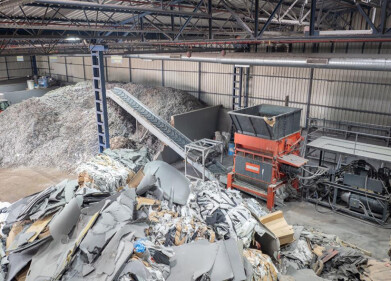Hazardous waste
Are These Teeth the First Ever Evidence of Man-made Pollution?
Jul 10 2015
The first evidence of man-made pollution has may have been uncovered by archaeologists.
Ancient teeth were found near Tel Aviv in the Qesem Caves, a site that has been sealed for 200,000 years. It has since been the centre of many important discoveries from the late Lower Palaeolithic period.
Dental plaque found suggests man-made pollution
The teeth that were found are believed to have belonged to the early Palaeolithic people and dated back some 400,000 years ago. Luckily, they had been extraordinarily well preserved, which allowed researchers to find traces of dental plaque still on the teeth.
The plaque on the teeth suggested that the prehistoric cavemen and women used fire to cook meat that they had managed to hunt. In doing so, they inhaled large amounts of smoke when they roasted the meat inside the caves. This would have been harmful to their health, as smoke inhalation would have affected their respiratory systems.
“This is the first evidence that the world's first indoor BBQs had health-related consequences,” said Professor Ran Barkai from Tel Aviv University.
“We know that the cave dwellers ate animals, and exploited them entirely,” he added, “We know that they hunted them, butchered them, roasted them, broke their bones to extract their marrow, and even used the butchered bones as hammers to shape flint tools.”
Dental plaque reveals caveman diet
The teeth also provided evidence of different kinds of food the Palaeolithic people would have eaten. The researchers managed to find minute traces of essential fatty acids, which could have come from nuts or seeds. The study also found tiny particles of starch on the teeth.
It is thought that the seeds and nuts would have supplemented the diet when meat was not available.
“Now we have direct evidence of a tiny piece of the plant-based part of their diet also, in addition to the animal meat and fat they consumed.
What else did the dental plaque reveal?
Professor Barkai said that the dental plaque revealed other facts about the prehistoric people:
“The people who lived in Qesem not only enjoyed the benefits of fire - roasting their meat indoors - but they also had to find a way of controlling the fire - of living with it.”
As well as the dental plaque found on the teeth, archaeologists found evidence of plant fibres nearby. This may have been used to pick food out from between the teeth.
“Our findings are rare - there is no other similar discovery from this time period,' added Professor Barkai. “This is one of the first, if not the first, cases of manmade pollution on the planet. I live near power plants, near chemical factories. Progress has a price - and we find possibly the first evidence of this at Qesem Cave 400,000 years ago.”
To find out how man-made pollution is affecting our world today read the following article, What Would Happen if We Stopped Polluting Today?
Events
Jul 15 2025 Brighton, UK
Jul 23 2025 Sydney, Australia
Aug 24 2025 Stockholm, Sweden and online
Aug 27 2025 Busan, South Korea
Sep 02 2025 Mexico City, Mexico






.jpg)







